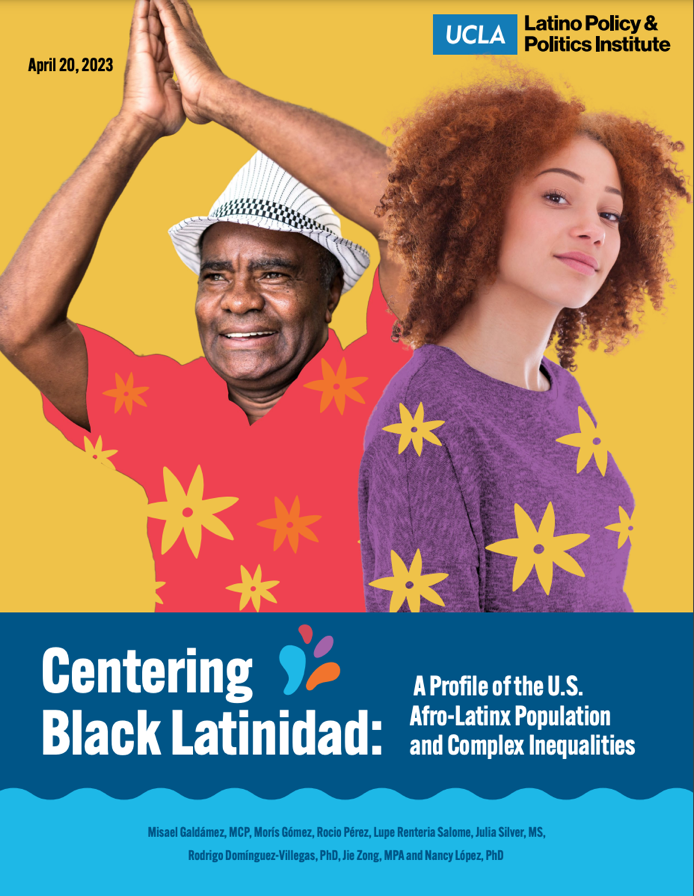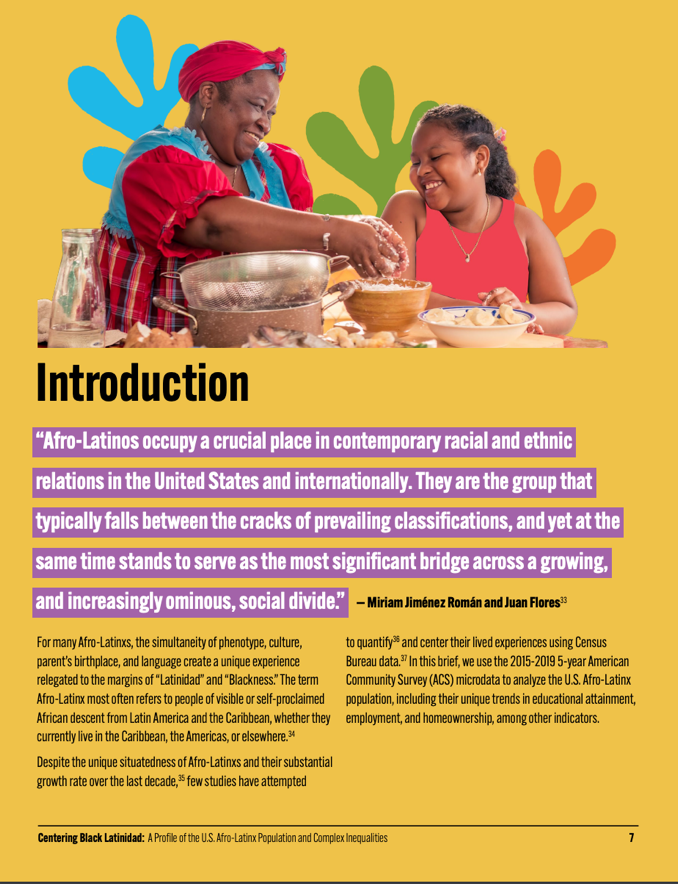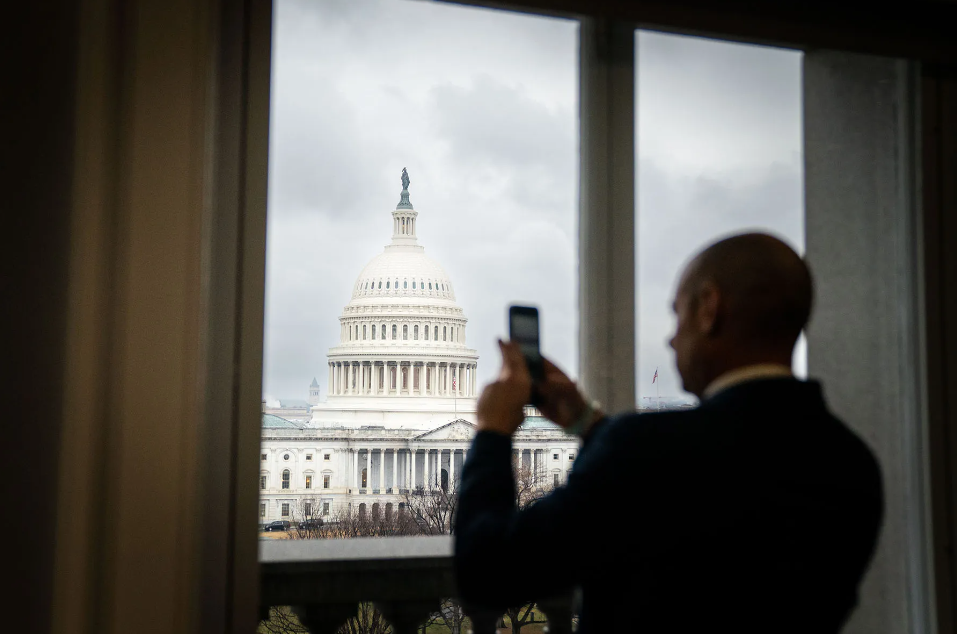Afro-Latinos: Bridging Communities
“Afro-Latino is, at the personal level, a unique and distinctive experience and identity, ranging as it does among and between Latino, Black and U.S. American dimensions of lived social reality. In their quest for a full and appropriate sense of social identity, Afro-Latinos are thus typically pulled in three directions at once, and share a complex, multi-dimensional optic on contemporary society. In another writing I have termed this three-pronged web of affiliations, taking my cue from W.E.B. Dubois, ‘triple- consciousness.’” – Miriam Jiménez Román
by Viviana López Green, Esq., serves as the Senior Director of Racial Equity Initiative for UnidosUS
Black History Month is a time of reflection and celebration, a period where the Black experience —with its achievements and struggles— is rightfully brought to the forefront. For Afro-Latinos, this month is a special time to honor their Black roots and the unique blend of cultures that define their experience.
The Afro-Latino identity is a testament to the enduring spirit of resilience and cultural fusion. As such, Afro-Latinos have a unique opportunity to act as bridges between Black and Latino communities in our country. This dual heritage allows a deep understanding of the struggles and triumphs of both cultures, fostering empathy and solidarity. By sharing their stories and embracing their identity, they can help build stronger, more inclusive communities.
How well do we know and understand the Afro-Latino identity? The following provides some resources to deepen our learning of Afro-Latinos and our country today:
1) Report: Centering Black Latinidad – A profile of the U.S. Afro-Latinx Population and Complex Inequalities


This report, published by the UCLA Latino Policy and Politics Institute in April 2023, provides a complex picture of the Afro-Latinx community in the United States. Besides the comprehensive and revealing data, the report highlights the need for researchers and policymakers to deepen their understanding of the nuances and simultaneity of race, ethnicity and ancestry, as well as their relationship to social inequalities. The analysis also points to the limitations of racial self-identification, which is currently implemented by the Census Bureau. The report concludes with an invitation to solidarity, especially for non-Black Latinos: “Latinos—and Latinidad—are not a monolith, and Afro-Latinidad is Latinidad. To be in Latino solidarity is to recognize how the lived experiences of Latinos differ by characteristics such as race, gender, ethnicity, immigration status, sexuality, citizenship status, disability, and class. The ability to be critically conscious of one’s social location in systems of power at both individual and structural levels is the first step toward building bridges of understanding with others with different experiences. Flexible solidarity toward liberation means centering the margins by advocating for groups such as Afro-Latinxs who experience a triple consciousness, reflected in many of the outcomes illustrated in this report.”
2) Documentary: Faith in Blackness – An Exploration of Afro-Latine Spirituality
“How do we explore the uniqueness of Afro-Latine Spirituality? How can we center the experiences of Black Latines and allow those experiences to help us understand Latine Spirituality and Theology? What can we learn from the lived experiences of Afro-Latines and that relationship to their spiritual practices? “Faith in Blackness: An Exploration of Afro-Latine Spirituality” is a short-form documentary which highlights the lived experiences of Afro-Latines of different faith traditions by sharing their stories and how their Blackness plays a role in their spirituality and vice-versa. This documentary showcases the individual lived experiences of Afro-Latines and their engagement to their faith and spiritual traditions.”
This awarded documentary by the Afro-Latine Project – ALP has been selected for several national and international film festivals and has had multiple free screenings across the country.
3) Initiative: Afro-Latinas in Politics

In November 2023, The 19th—an independent, nonprofit newsroom—reported on an initiative focused on strengthening the pipeline of Democratic Afro-Latinas running for office. “Congress doesn’t have any members who identify as Afro-Latina, lacking representation for a key segment of the nation’s Latinx population. Changing that reality is the goal of an initiative by Latino Victory, a progressive group working to increase Latinx representation in public office.” The group, co-founded by Eva Longoria, plans to publish a blueprint this year with steps for growing the bench of Afro-Latina elected leaders and helping elevate the first Afro-Latina to Congress.
As we commemorate Black History Month, we elevate the intersection of the Black and Latino identities—not seen as a divide—but as a powerful source of unity and strength. Black History Month, from an Afro-Latino perspective, is a reaffirmation of an identity and a call to recognize the intertwined histories and futures of Black and Latino communities.
Related Entries
- A Mosaic Called Afro-Latinidad
- Afro-Latin American and Afro-Latinx Studies: The Consolidation of a Field
- Afro-Latinidad: The celebration of a multifaceted identity
- ALAS II: Welcoming AfroLatinx Youth
- Black History Month 2021: Here’s How UnidosUS is Exploring the Intersection of the Black and Latinx Experience
- Celebrate Afro-Latino voices with the UnidosUS reading list
- Afro-Latinos are part of the American story



